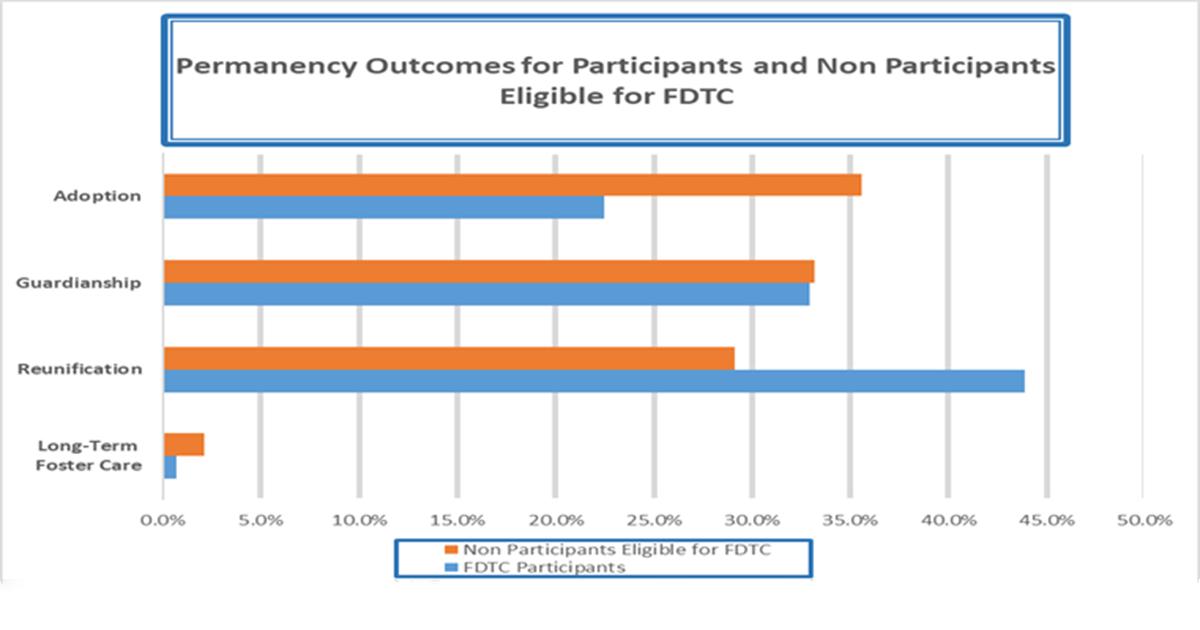The idea of a family drug treatment court is that it takes teamwork, collaboration, and commitment to successfully rehabilitate participants with substance use disorders via a community-based alternative to incarceration.
Milwaukee County’s Family Drug Treatment Court (FDTC), begun in May 2011, and was a first for Wisconsin. The program diverts participants from the traditional justice system into a specialty court and creates an individualized plan that takes into account the participant’s mental and physical health as well as any relevant environmental factors. Throughout the program, participants are provided with the tools they need to lead productive and law-abiding lives.
Rebecca Foley Cramer, Loyola 2009, is the Family Drug Treatment Court coordinator for Milwaukee County Circuit Court.
It is part of the county’s children’s court system, and participants are parents whose children have been removed due to safety issues primarily caused by the parent’s substance use disorder.
FDTC is not criminally based, although a representative of the Wisconsin Department of Corrections participates as a team member. Incarceration is not used as a sanction.
About the Program
FDTC is an entirely voluntary program and asks its participants to commit to work towards sobriety and recovery.
FDTC clients spend approximately 15-18 months participating in the treatment court, appearing at a minimum of biweekly throughout the course of the program.
At the weekly team meeting, parents are joined by the judge, their attorney, the guardian ad litem for the child, assistant district attorney, family case manager, treatment provider, and recovery support coordinator. The team’s purpose is to problem solve, provide support, and hold the parent and whole team accountable, ensuring that the parents and family receive the timely support and services they need to move forward.
The ultimate goal of FDTC is to find permanence for the child, primarily with the parent. If that is not possible, the goal is to achieve timely alternative permanency through guardianship or adoption.
Milwaukee County FDTC follows the national evidence-based best practices for FDTCs, including:
a focus on services to child and parents;
decreased time to treatment entry;
frequent counseling sessions and longer time in treatment;
frequent random and observed urine drug testing with immediate results;
a relationship with the judge;
judge, treatment representatives, and parent attorneys attend staff meetings;
results of program evaluation led to drug court modifications;
program includes less than 125 cases.
National statistics show that decreased length of time into treatment, frequent counseling sessions with an individual counselor, and completion of treatment significantly increases the likelihood of reunification and decreases the chance of recidivism.
Milwaukee County FDTC clients enter treatment faster and are more likely to remain in and complete episodes of treatment. FDTC cases are handled holistically, and clients receive services not only for their substance abuse, but also trauma, mental health, education, job readiness and housing services, in addition to services to address the children’s needs and stabilize the family.
Results for Parents and Children
The FDTC has been in existence for 11 years and has experienced positive results for parents and children. Parents participate in substance abuse treatment, improve their employment and training situations, and build better support systems.
Most importantly, their children are more likely to attain permanency than children whose parents have not participated in the program.
Permanency for Children
Permanency means that children who were placed in out-of-home care are reunified with their parent or placed in long-term foster care, with a guardian, or are adopted (see Figure 1).

Figure 1: Permanency outcome comparison for program participants and nonparticipants. Note that the comparison group is comprised of families impacted by parental substance use who were eligible for FDTC but chose not to participate.
Program Engagement Numbers
The program serves on average 40 participants a year. Participants enroll in community substance use treatment and receive mental health services when appropriate.
All participants have access to a recovery support coordinator who helps them navigate the substance use treatment system and community resources. FDTC partners with providers in the community to offer mental health consultation and peer mentor support to the participants.
For the FDTC:
average time cases are in FDTC is 343 days;
average time to reunification for FDTC families is 366 days;
after reunification, 28% of participants remain in FDTC for an average of 3.4 months; and
women who are actively participating in FDTC or have successfully completed the program have had 37 babies born free of illicit substances.
Program Improvements
After implementing peer mentor outreach in 2017, FDTC increased African American parent participation by 62%.
From 2011 to 2016, the average time to program enrollment was 116 days. From 2017 to the present, the average time to program enrollment decreased to 63 days by eliminating the requirement of jurisdiction prior to FDTC entry.
After 2016, the percentages of participants who were discharged within six months of program enrollment decreased from 28.5% to 20.7%
Where to Find Out More
To learn more about Family Drug Treatment Court, watch the video Milwaukee County Family Drug Treatment Court Program Overview by the Milwaukee County Department of Health and Human Services, or contact Rebecca Foley Cramer via email.
This article was originally published on the State Bar of Wisconsin’s Children & the Law Section Blog. Visit the State Bar sections or the Children & the Law Section webpages to learn more about the benefits of section membership.
